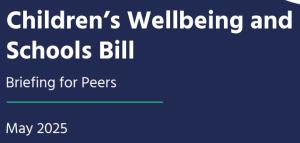There is a well-documented attainment gap between disadvantaged and non-disadvantaged children. A pupil is classed as disadvantaged by the Government if they have been eligible for free school meals within the five years before sitting GCSE exams or if they have been in care or adopted from care. In 2019, 26.5% (144,000) of pupils in state-funded schools at the end of key stage 4 were disadvantaged. Of these pupils, just a quarter achieved English and Maths at grades 9-5, compared to half of non-disadvantaged pupils. The disadvantage gap (as measured by the disadvantage gap index) was 3.70 in 2019 – 9% lower than in 2011, when it was 4.07. But it has risen slightly for the second year in a row, from 3.66 to 3.68 in 2017-18 and from 3.68 to 3.70 in 2018-19.
Without intervention, school closures are likely to widen the disadvantage gap further still. The annual “learning loss” experienced by pupils each summer is evidence for this. The vast majority of children decline academically over the long summer break, but for disadvantaged children the effect is particularly pronounced: evidence suggests that the summer holidays might account for almost two thirds of the attainment gap between rich and poor children at age 14. Research from the Sutton Trust has already shown that by the start of this month, 34% of pupils had taken part in live or recorded online lessons, and that pupils from middle class homes are much more likely to have taken part (30% doing so at least once a day compared to 16% of working class pupils). At private schools, 51% of primary and 57% of secondary students have accessed online lessons every day, more than twice as likely as their counterparts in state schools.
If schools re-open in May and shut as normal for the summer, children will have spent 16 weeks out of school since the start of the Covid-19 crisis by the time they go back in the autumn. If schools only return in September, it will have been 6 months. In his press conference at the weekend, Education Secretary Gavin Williamson shared his concerns about the impact on children from disadvantaged backgrounds:
“I will do everything I can to make sure that no child, whatever their background, falls behind in their education as a result of coronavirus.”
This briefing sets out how this can be achieved – how schools can be supported to adapt to the “new normal” and improve access to meaningful educational opportunities for disadvantaged children in the weeks and months to come.



